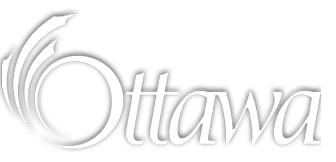We are the Children
Award-winning educator, activist, and community leader June Girvan discusses the importance of understanding and reconciliation—and the complicated journey we all share in trying to make peace with the past.
Upheaval Across Canada’s Landscape of Commemoration
Randy Boswell highlights the opportunity to find deserving figures "other than Victorian-era politicians, government functionaries and members of the British mobility" to name our landmarks after. Randy had been one of the first to propose, in a 2020 Ottawa Citizen column, to rename Ottawa's Prince of Wales Bridge in honour of Chief William Commanda.
Randy, a past member of the HSO Board of Directors, draws attention to the way "the naming of streets, buildings and other places has sometimes memorialized slave owners and other unworthy figures from the past" and suggests replacing implied tributes to "historical figures (Henry Goulbourn, for example) with deeply problematic past and little or no connection to our country".
In other cases, Randy advocates a delicate balance, with figures such as Sir John A. Macdonald, to "find ways to preserve pride in the achievements of Canada's founding prime minister without ignoring his role in shaping the Residential Schools system and other racism-laced policies targeting Indigenous and Chinese people."
(At the start of his presentation, Randy acknowledges that there exist a wide range of views on this topic and invited audience members to join the conversation during the Q&A session following his talk.)
Since the HSO's founding almost 124 years ago with our mission to “increase public knowledge of the history of Ottawa” and “to preserve the history of the peoples of Bytown and Ottawa”, we have frequently been guilty of telling Ottawa's stories from a very narrow cultural perspective.
We can't "erase" the past in terms of erasing what has already been written. But we need now to expand upon what has been written -- and update the record of our past with the important perspectives that thus far have been glaringly missed from our history books.
We need to understand, acknowledge and come to terms with our past -- as historical society, as a city, and as a nation.
Randy, a journalist and Carleton University professor, notes that we should be at liberty to override some of the naming choices made by our Victorian-era forebearers that date back to a very different colonization era.
Randy's presentation recognized the difficult task ahead for Ottawa’s politicians, city planners and community groups (including HSO) in setting new, inclusive standards on how to honour the past, into the future.
Upheaval across Canada's Landscape of Commemoration
Follow this HSO presentation by Randy Boswell, Carleton University professor and journalist, as he investigates the ongoing controversy over our commemorative landscape and explores whether there are constructive healing ways forward.
Capital History Kiosk Project
They’re easy to spot when you’re walking along any of Ottawa’s busy streets. They’re designed to be recognized.
Our October 13, 2021 presentation is about the traffic control boxes at many of Ottawa’s intersections; not of the drab utility boxes themselves, but about the colourful history lessons that have been applied to them to remind you of what Ottawa used to look like 10, 50, or 100 years ago, and to tell the story of a significant event that took place near each control box.
David Dean has been a professor of History at Carleton University since 2000. He got the kiosk project moving forward in 2015 with utility boxes along Bank Street, to tell the story of the local businesses. This early stage was completed in collaboration with the Workers History Museum and the Carleton Centre for Public History. The Capital History Kiosk Project expanded city-wide in 2017, as part of Canada’s 150th Anniversary celebration.
Danielle Mahon is an MA student as Carleton. She talked about the process of gathering information on each kiosk, and uploading location information on the kiosks to the Capital History website, at www.capitalhistory.ca. Students have also assisted in the project to add QR codes at each traffic box so that pedestrians can scan the code with a cell phone to read more about the history depicted at each box.
Being the national capital, there is no shortage of stories to tell about Ottawa, and fortunately there is no shortage of control boxes. David notes that the city as about 19,000 of them. The kiosk project is expanding as more research is done, so don’t be surprised if you see a new one next time your walking, jogging, or cycling around town.
Visit the HSO YouTube channel for to view the full presentation about the Capital Kiosk Project.
Capital History Kiosk Project
In this presentation, David Dean and Danielle Mahon demonstrate the unique approach to local storytelling through the Capital Kiosk Project.







